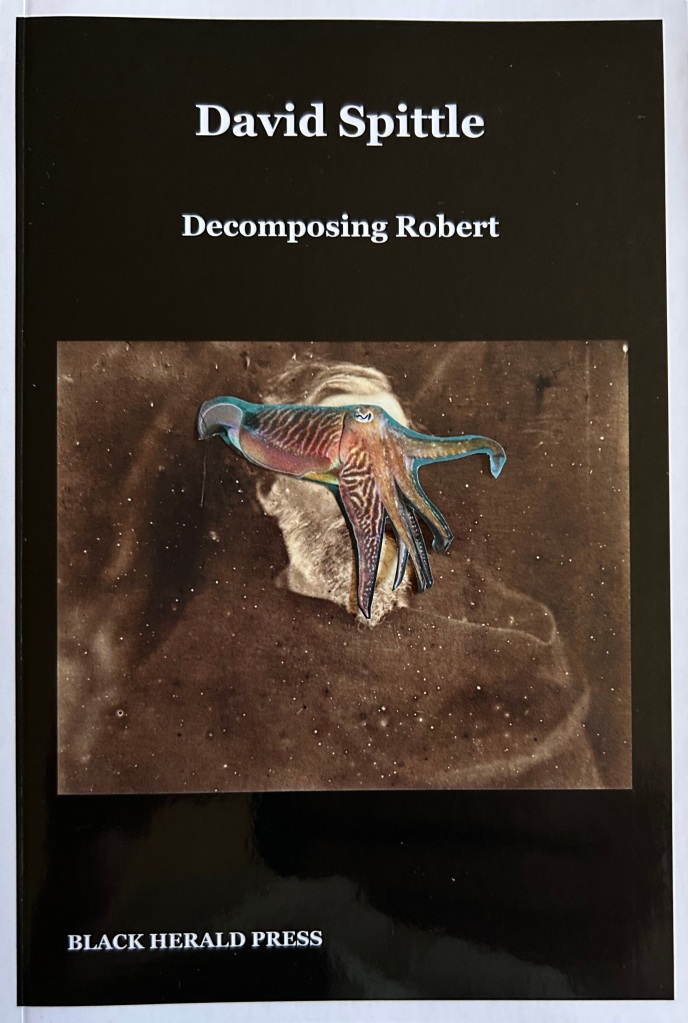Decomposing Robert, David Spittle (Black Herald Press), 15€/£14
Resuming after 14 months pretty much as though nothing had happened is how this works, so here’s another ‘just a sentence’ that, thanks to enthusiasm/inability to to think succinctly, got way out of hand and turned into a mini-review, or, in this case, into an Afterword for the book . Getting out of hand, skin and indeed muscle, memory, and fatty tissue, however, is very much the agenda with Dave Spittle’s long poem on in and after Browning. For that reason, there is another mutated version of this review here.
*
When my reading list for first year at university included (among much else), The Ring and the Book, I experienced two contrary sensations: a quailing – would it all be like this? And a quivering urge to be among the blank verse/and never to emerge. There is in all of us – thankfully to varying degrees – the temptation to betray this life in favour of the afterlife that is reading, and something of the same sensation overwhelms the reader a few hundred lines into David Spittle‘s latest maximal opus.
We are, we realise, much as David Bowie exclaims in Twin Peaks, living inside the text: you, me, Browning, EBB, David (Spittle, though let’s not exclude Bowie), a doctor, Harrison Ford, and, of course, Agent Dale Cooper. ‘Who hears anyone above the meter,’ or amid ‘the mud-stuck chess’ of poems, letters, fantasias, reflections, digressions, someone’s memories (and Memory’s someones)?
Text emerges from text; text devours text; dust dines on lust. The corpses of bookworms swill; the dead centipedes invent new punctuation – ‘The work: remains.’ The glorious truth this circles around is that the only recording of Browning is of Browning forgetting his own poem. As the text breaks down, there are shades of Michael McClure reading to the lions, except the lions appear to be on the other side of the bars, dressed as condottiere in half armour: ‘Robert and Elizabeth. nutrition in the slidings of form. to love like that through letters.’ While its protagonists lack a pulse, the verse itself has one that is indeed audible above and beyond the meter.
This is as much a meditation on reading poetry as on reading Browning: what has happened to that space beyond the short sharp lyric, it asks us, beyond the slim, single-themed volume, the milling space Nietzsche described as occurring between two thoughts, where Browning somehow persists, undead, under-read?
Disguise it as we might in the new fustian of relatability, there comes a moment when we all realise, as Spittle posits towards the dissolution of his final pages – while contemplating both the Deadness and the Whiteness of the Male, beneath the ‘gastric sky’ and with the cancelling line of sous rature for our horizon – that reading has itself become fetishised, a certain good in itself, regardless, instead, or in dread of content, and we are therefore the corpse-eaters in denial, with our napkins secured to our insectoid thoraces, slurrying our words in the anxiety of effluence: tuck in, tuck in! Get stuck in! Get stuck.


